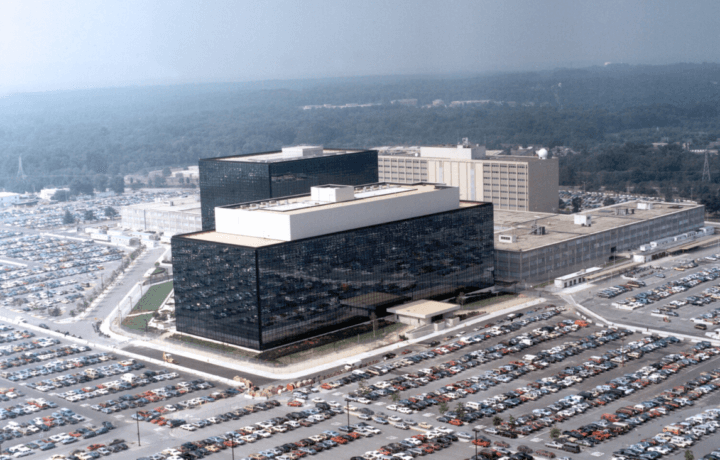The National Security Agency (NSA) security clearance process for applicants is unique among federal agencies. Both government contractors and federal employees at NSA are subject to a similar process. It is important to consider your potential background issues before undergoing what can be an extensive process.
Clearance Processing at NSA
Typically, individuals will be processed for employment or government contracting work at NSA by first completing the relevant security clearance forms (i.e., SF-86). Some individuals might be seeking both their base clearance (Top Secret) and Sensitive Compartmented Information (SCI) access through NSA. Others may have an existing security clearance from another agency (e.g., the DoD) and need SCI access to work on an NSA contract. In either situation, NSA will process the investigation in a similar way. After completing the security clearance paperwork, an investigation will begin using the traditional investigative methods you might expect.
Background Investigation
NSA will initiate a background investigation into an applicant. This involves conducting interviews with friends, family, co-workers, and supervisors. NSA will also contact an individual’s employer to evaluate their past employment. Additionally, the NSA will conduct a personal interview of the applicant to review their responses to the security questionnaire.
Psychological Exam
Most individuals seeking a security clearance with NSA will undergo a psychological examination by a licensed medical professional. This can include both a standard psychological written exam and an interview with a clinical psychologist. Although the psychological review is technically part of the NSA suitability review process, it can also be factored into the security clearance process at NSA.
Polygraph Processing
NSA will eventually begin processing individuals for security access through the polygraph process. NSA polygraphs tend to be fairly extensive. In certain polygraph cases, especially where there has been extreme difficulty during the polygraph process or where a criminal issue could arise, it may be important to have a lawyer represent or advise you during the polygraph process. This clearly isn’t for every case, but it really depends on the situation. Keep in mind that it is not uncommon for an individual to have 2-4 polygraph examinations to complete the NSA process.
Further Investigation
NSA may have further follow-up questions related to disclosures provided during the polygraph examination process. These types of interviews can run 1-3 hours, on average, and can result in potential additional polygraph exams. After this stage, NSA usually makes a decision as to whether to grant or deny the security access sought.
Clearance Decision Statement
Should there still be unresolved security concerns, NSA will issue a Clearance Decision Statement (CDR) specifying the negative security concerns identified in the security clearance process. The CDR is often rather long and will go into detail about the security clearance concerns at issue. Attached to the CDR will be most (but not all) of the materials relevant to the security concerns. The individual will be given a chance to request a review and respond, in writing, to the CDR within 45 days.
First Step Decision
After a security clearance response to the CDR is submitted, the next step is for NSA to review the response and issue a decision on the first step appeal. The individual seeking access will either receive a letter granting access or one denying the first step appeal. If denied, the individual can file a notice of appeal within 15 days. This is a second-step appeal. At this point, the individual can submit an additional statement or records in support of seeking restoration or granting of a security clearance in addition to an in-person meeting.
Access Appeals Panel (AAP) In-Person Appeal
The AAP is the second stage of the NSA clearance appeals process. Typically, the individual appealing will submit a written appeal with exhibits to the AAP. Following receipt of the appeal package, an AAP hearing will be scheduled at NSA at some point (likely within 2 months of submission). The AAP Panel will typically consist of about five individuals with significant experience at the NSA. There may also be an NSA attorney and others involved in the security clearance hearing process.
The AAP Hearing is about an hour in length, during which there will be several questions, back and forth, with members of the AAP. All of the major security concerns will be addressed. The AAP is fairly engaged and knowledgeable about each case, so it is important to prepare an individual properly for the hearing. Once the hearing has adjourned, the AAP will render the NSA final clearance decision, usually within a week to 3 weeks. Once the decision is issued, there are typically no further appeals. Even if denied, an individual can apply after a year (or later in some cases) if the security concerns are later resolved.
Final Thoughts
The security clearance process before NSA is extensive and can take a fair amount of time to complete. I also advise applicants for federal employment or contracting to carefully consider potential issues in their background before undergoing NSA security processing given their thorough clearance case processing.
This article is intended as general information only and should not be construed as legal advice. Although the information is believed to be accurate as of the publication date, no guarantee or warranty is offered or implied. Laws, regulations and government policies are always subject to change, and the information provided herein may not provide a complete or current analysis of the topic or other pertinent considerations. Consult an attorney regarding your specific situation.




